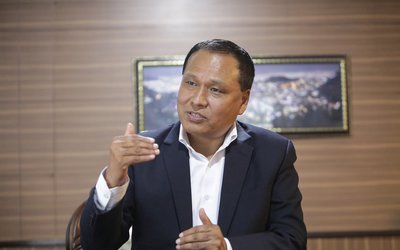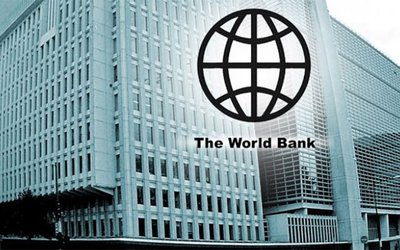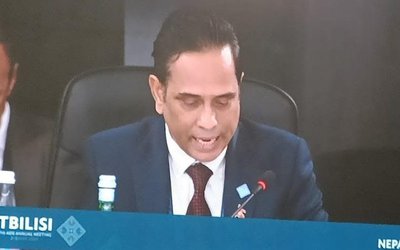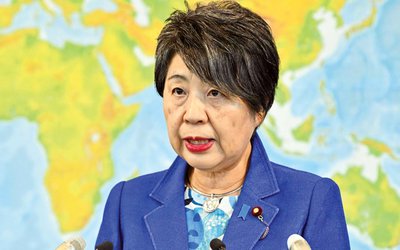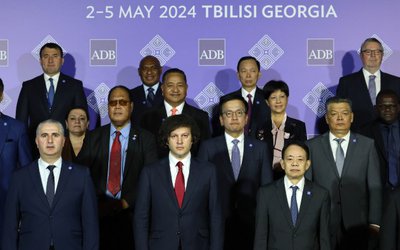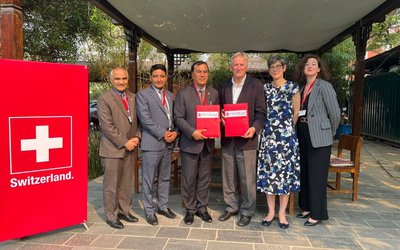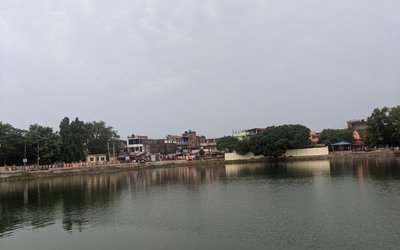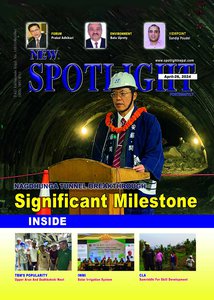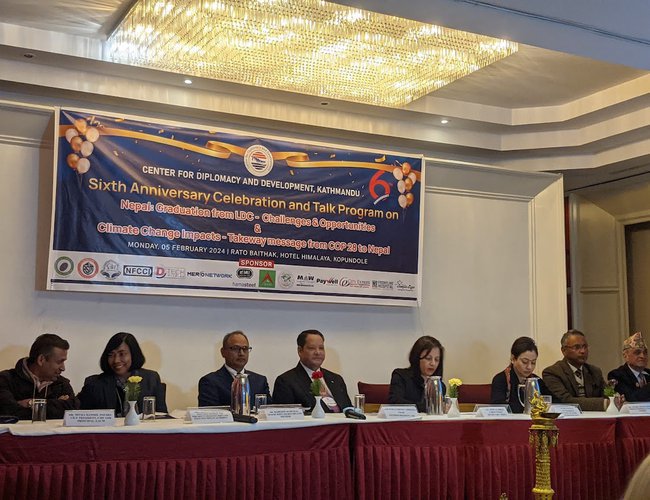
Chandra Ghimire, former secretary of the Ministry of Industry, Commerce, and Supplies, stated that Nepal will encounter significant trade challenges after graduating from Least Developed Country status in 2026.
Former secretary Ghimire presented his paper on Nepal's graduation from LDC: Challenges and Opportunities at a program organized to mark the Sixth Anniversary of the Center for Diplomacy and Development. Ghimire highlighted that Nepal's preparation is poor in terms of policy and legal frameworks as the country is set to transition from a least developed country (LDC) to a developing country in 2026.
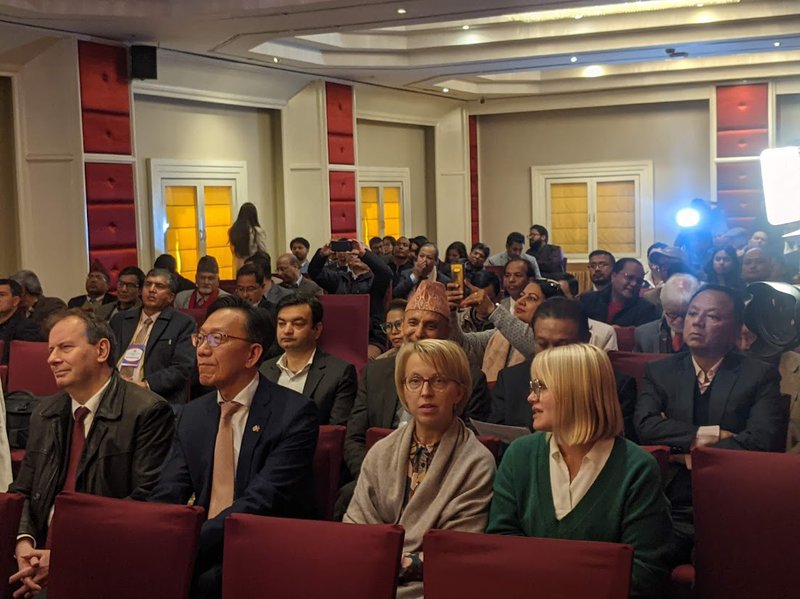
Secretary of Ministry of Foreign Affairs Sewa Lamsal inaugurated the event. Dr. Maheswar Dhakal, joint secretary at the Ministry of Forest and Environment, presented his paper on Climate Change Impacts and takeaway message from COP 28 to Nepal.
In the first presentation, Secretary Ghimire stated that Nepal has not yet met the three major eligibility criteria laid down by the United Nations for promotion.
Secretary Ghimire revealed that Nepal's exports will be severely impacted, especially for Small and Medium Industries.
Nepal is close to achieving a higher per capita income and Human Assets Index, but ranks low in environmental and vulnerability indices. Nepalese industries will face tough competition once the country graduates.
Secretary Ghimire stated that Nepal's trade will be limited to a few countries once LDC preferences arrangements are removed.
He also noted that the end of non-reciprocal preferences received through the Generalized System of Preferences in several countries is a crucial factor.
Secretary Ghimire stated that the South Asian Free Trade Area will remove LDC provisions in exports. He also mentioned that proving the LDC requirement for Rules of Origin is difficult.
Additionally, he highlighted the positive changes that LDC graduation will bring, such as boosting national confidence and image on the international stage. However, a country's efficiency in capitalizing on graduation will determine its success.
Secretary Ghimire suggested that Nepal should consider several measures to prevent graduation from becoming a trade catastrophe. One suggestion was to obtain a grace period for preferential market access.
Additionally, Ghimire highlighted that the cost of production in Nepal is much higher than that of our South Asian neighbors, ranging from 20 to 30 percent. He also mentioned that transportation costs are another issue.
Finally, Ghimire emphasized that policy conflicts that paralyze the prospects of implementation should come to an end. He has stated that graduating from LDC status is a significant achievement. However, it is not a time to gloat. The ultimate question is whether the benefits outweigh the losses.
As the chief guest, Secretary Lamsal made it clear that Nepal has no option but to qualify from the LDC by 2026, ensuring necessary policy reforms and legal changes in the remaining years.
She stated that the government of Nepal has already begun to reform policies, laws, and regulations. Foreign Secretary Lamsal stated that Nepal is raising the issue of climate change because it is one of the most vulnerable countries in the world.
CDC Chair Mohan Krishna Shrestha stated in his opening remarks that Nepal is scheduled to upgrade from a least developed to a developing country status on November 24, 2026, in just three years.
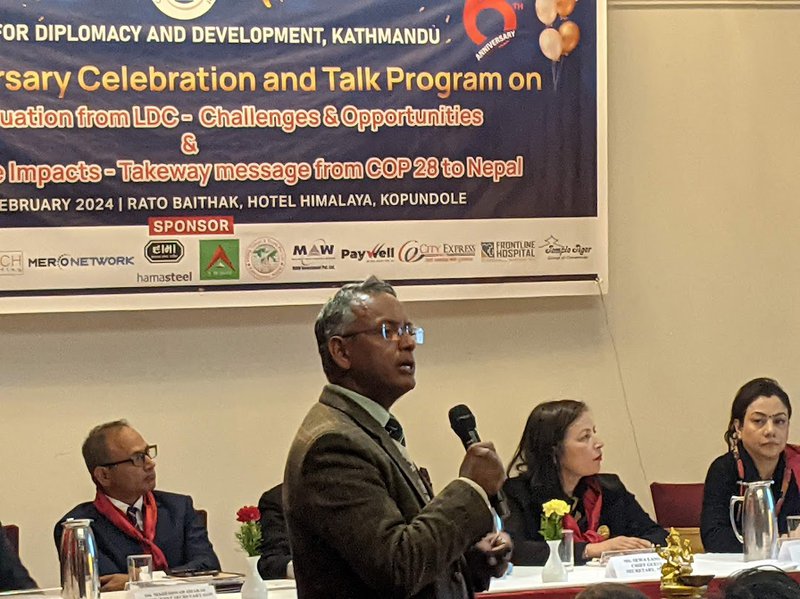
Shrestha stated that the promotion would boost morale, despite the formidable challenges it presents.
Nepali people's talent and expertise can turn these challenges into opportunities. After graduation, Nepal is expected to lose many trade facilities, but this also provides an opportunity to reshape our thinking and find new avenues to deal with emerging challenges, particularly in trade areas.
If we face setbacks in one area, we should strive to excel in others. To improve, we must focus on our strengths and advantages. By effectively implementing these objectives, we can accelerate our development pace in the future. Our economic diplomacy should prioritize six objectives: promoting tourism, exports, foreign direct investment, foreign employment opportunities, and increasing foreign aid.
Joint Secretary Dhakal highlighted Nepal's steps towards seeking additional funding for the country's mitigation and adaptation sector in his paper.
Former President of the Federation of Nepalese Chamber of Commerce and Industry, Bhawani Rana, urged the government to take all necessary measures to prevent significant damage to Nepal's foreign trade following graduation. The event was attended by foreign diplomats, scholars, and former Nepalese diplomats.
In summary, Mitrabandhu Paudel, Vice President of CDD and Principal of LACM, stated that there are many challenges ahead regarding LDC graduation and climate change.
The guest, former Secretary Shanker Prasad Pandey, was welcomed by Shanti Laxmi Shakya, Executive Member of CDD, and Executive Member Pandey gave a vote of thanks.
- Deeply Concerned About The Continuous Dissemination Of Intentional And Well-Planned, Malicious, And False News And Comments: MD Kul Man Ghising
- May 08, 2024
- 414 Climber Took Permission To Climb Mount Everest
- May 08, 2024
- Mata Tirtha Aunsi 2024: Mother’s Day Of Nepal And Its Importance
- May 08, 2024
- Weather Forecast: Light Rain With Likely To Occur At Few Places of Terai Region
- May 08, 2024
- NEPAL: World Bank Approves $80 Million to Strengthen Financial Sector, Increase Access to Financial Services
- May 07, 2024

